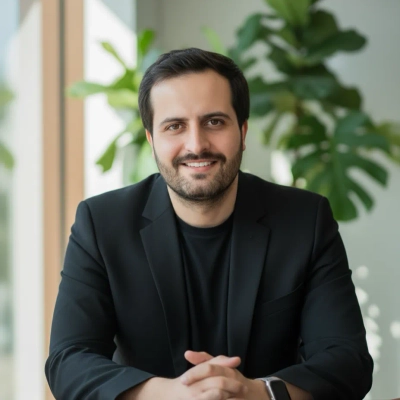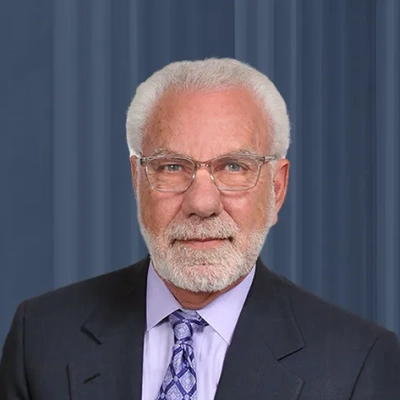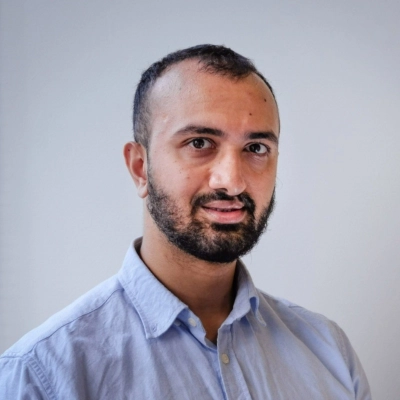How Continuous Learning Strengthens Leadership Growth
Leadership demands constant adaptation in a world where AI, customer expectations, and market conditions shift faster than ever. This article brings together insights from experts in the field to help leaders sharpen their decision-making, build resilient teams, and stay competitive through intentional learning. Whether it's questioning assumptions, interpreting data with human judgment, or communicating with clarity, these strategies offer practical ways to strengthen leadership growth.
Continuous Learning Keeps Decision-Making Sharp and Relevant
When I transitioned spectup into a full-time venture, I've realized that continuous learning is the lifeline that keeps decision-making sharp and relevant. In the startup and investor ecosystem, the pace of change is relentless, whether it's fundraising dynamics, regulatory shifts, or emerging technologies like AI and fintech. I remember early on thinking I could rely solely on prior experience, but one misstep in investor outreach showed me that assumptions quickly become outdated. That moment pushed me to prioritize deliberate, ongoing learning as part of my leadership practice rather than treating it as an occasional exercise.
One specific area I'm currently focused on is understanding behavioral analytics and AI-driven decision-making. At spectup, we work with founders who increasingly rely on AI to optimize fundraising strategies, investor targeting, and operational efficiency, and I realized that to guide them effectively, I needed a stronger grasp of how these systems generate insights and where they might mislead. I dedicate time to reading specialized publications, attending focused webinars, and testing new tools in real scenarios to see their practical implications. One of our team members helps synthesize these learnings into actionable strategies we can implement for clients, bridging the gap between theory and practice.
What I've learned is that continuous learning doesn't just improve knowledge, it directly impacts confidence, adaptability, and credibility as a leader. It also models the behavior I want founders and teams to adopt: staying curious, testing assumptions, and integrating new insights quickly. This ongoing focus on personal and professional development has shaped spectup's approach to advising startups, ensuring that we provide guidance that is both informed and forward-looking. Ultimately, leadership isn't static, and the most effective leaders are the ones who keep evolving alongside the ecosystem they operate in.

Stay Curious and Adapt Your Thinking
I don't really see "continuous learning" as a nice-to-have for leaders; it's the actual job.
The world I work in—PR, media, and brand strategy—is changing so fast that if I'm not learning, I'm leading from a version of reality that no longer exists. For me, that means treating my career like an ongoing research project: I'm constantly testing ideas in my own business, studying what works across clients and industries, and layering in formal learning through programs in analytics and organizational psychology.
The piece that matters most is who I become as I'm learning. My team and clients don't need me to have all the answers; they need me to stay curious, adaptable, and willing to update my thinking when the data or the humans in front of me tell a different story than my ego would like.
Right now, one area I'm focused on is leading with more calm and spaciousness instead of urgency. I have an all-or-nothing, high-achiever default, and while that's great for shipping big ideas, it can create unnecessary pressure for the people around me. I'm actively working on slowing my reactions, asking better questions instead of jumping straight to solutions, and bringing my background in organizational and behavioral psychology into how I structure expectations, feedback, and culture.

Challenge Your Own Assumptions Through Peer Learning
Continuous learning matters for leaders because your perspective needs to be challenged. It is easy to think your decisions are solid when things are going well, but that confidence disappears the moment a real problem hits. The only way to stay sharp is to keep exposing yourself to new ideas and tougher thinking.
I have always learned more from peers than from classrooms. I joined a group for entrepreneurs, and it has been one of the most valuable decisions I have made. They bring in strong speakers, but the real growth comes from the conversations in the room. You hear the mistakes other founders made, the systems that failed, the ones that worked, and the lessons they earned the hard way. I bring those insights back to my team along with new books, tools, and ideas to test.
I also encourage my employees to join groups in our industry so they keep learning too. A company grows faster when the entire team is developing, not just the person at the top.
Right now I am focused on improving how I challenge my own assumptions. It is easy to rely on patterns that used to be true but no longer are. Hearing how other entrepreneurs solve problems forces me to recheck those assumptions and make better decisions before small issues turn into real ones.
Stay Competitive by Understanding AI Deeply
Continuous learning isn't optional anymore. The market moves too fast, technology changes too quickly, and your competitors are learning whether you are or not. I see too many leaders get comfortable and think their past success means they've figured it all out. That's when you become irrelevant. Staying sharp means you stay competitive.
Right now I'm focused on understanding AI. Not just surface-level stuff, but really digging into what it means for our operations, our customer experience, and our team structure. I'm taking courses, testing tools, and talking to people who are ahead of the curve. It's uncomfortable because I'm a beginner again in this space, but that discomfort means I'm growing. Leaders who aren't learning are just managing decline.

Create a Collaborative Learning Culture
Continuous learning and development is essential for everyone in today's rapidly evolving world, and it is particularly critical for effective leadership. Leaders must be both strategic in their thinking and tactical in their decisions. I regularly share books that bring new ideas with my leadership team and challenge them to do the same, creating a collaborative learning culture. I do the same with clients to help them create a "learning organization". This practice keeps us all engaged in personal growth and ensures we're bringing fresh perspectives to our leadership approach.

Improve Decisiveness to Stay Ahead
Leadership is a lot like litigation: if you stop preparing and adapting, you will eventually get outmaneuvered. Continuous learning isn't just a buzzword. It is the only way to stay ahead of the curve when laws, technology, and competitors are constantly shifting. The one critical area every leader must relentlessly improve is decisiveness. Just as I have to make split-second calls on whether to settle a case or take it to trial based on imperfect information, a leader must be able to analyze the risks, make a firm decision, and move forward without hesitation, because paralysis is often far more damaging to a business than a wrong choice.

Scale Personalized Recognition Through Continuous Growth
I've learned that leadership isn't something you reach; it's something you practice every day. My focus right now is on figuring out how to better connect our strategy with recognition. Whether it's an employee rewards program or a customer rebate, I want to make sure what we create really motivates people and reinforces the culture we're building. It's about understanding what drives each individual and how our programs can reflect that.
Learning is a constant part of that. I spend time exploring new ways to engage teams, improve our incentive programs, and make rewards more meaningful. Seeing what works, talking with clients, and testing new approaches keep me sharp. It also helps me anticipate challenges and respond in ways that make our employees feel supported and valued.
One area I'm really focused on right now is scaling personalized recognition. Every employee has different strengths and motivations, and finding ways to make rewards feel personal, even as our teams grow, is a challenge I'm excited to tackle. It's incredibly rewarding when a program hits the right note and you can see the impact it has on engagement and morale.
For me, leadership and learning go hand in hand. Every program we run teaches me something new about communication, motivation, and strategy. Investing in my own growth helps me design better employee rewards and customer rebates, and in turn, makes the experience more meaningful for everyone involved. The more I learn, the better we can recognize and reward the people who make our work possible.
Build Decision Clarity Under Ambiguity
I think continuous learning for leaders isn't about staying "sharp" in some generic way. It's more like staying humble in public. The minute you're leading a team, your learning habits stop being private self-improvement and start becoming cultural policy. People watch what you're curious about, what you ignore, where you change your mind, and they build a model of "how safe it is to grow here" based on that.
What surprised me over the years is that leaders don't usually get stale because they're lazy — they get stale because the job rewards certainty. You're constantly asked for answers, predictions, confidence. If you're not careful, you start optimizing for looking right instead of getting it right. Continuous learning is the antidote to that. It's a way of telling your team, "We're allowed to be unfinished," which is basically the healthiest thing a company can believe.
One area I'm actively working on right now is what I'd call decision clarity under ambiguity. Not speed — clarity. I used to think being a good CEO meant making fast calls. Now I think it means making calls people can understand and reuse even when the situation is messy. So I'm practicing things like:
- writing down the actual bet we're making (not just the plan),
- naming what would change my mind ahead of time,
- and explaining the "why" in a way that someone two levels down can apply to their own decisions without needing me in the loop.
It sounds simple, but it's hard. You're basically trying to turn intuition into something transferable. When I get that right, the team moves faster without me, and we avoid the classic trap where a company scales but decision-making stays stuck in one person's head. That's the muscle I'm building.

Ask Better Questions With Curiosity
At Legacy Online School, I believe ongoing learning is the quiet superpower of modern leadership. It is easy for founders to be stuck in "expert mode"; after all, we think we always need to have the answer! The reality is that the moment a leader stops grappling with new information and learning, the organization slows down.
At this stage, the area I am deliberately working on is growing a stronger "learner-first" mindset in my own leadership. For me, it means resisting the tendency to jump in immediately with solutions, to instead just get better at asking sharper and better questions with curiosity. It is hard but so rewarding!
Every Monday, I meet with a small group of teachers to just listen to what is going on in their classrooms. I leave every time with three questions I don't know the answers to, and the questions give shape to my priorities for the week. The habit of coming in and just asking questions has given me greater depth than any leadership book, or a strategy deck!
Continuous learning is not just about being better at building skills; it is how you stay grounded in reality, connected to your people, and open to possibilities. At Legacy, this way of approaching our work informs our mission: we think of education as not merely a period of life, but a frame of mind forever!

Question Core Assumptions Before They Fail You
For a leader, learning isn't just about staying relevant. It's about making sure your model of reality is still accurate. My work building AI systems really drove this home for me. The most dangerous AI models are not the ones that are wrong from the start, but the ones that used to be right and have slowly become obsolete. They fail in silence, giving you confident predictions based on a world that no longer exists.
A leader's own mental models are exactly the same. Your assumptions about your team, your market, or your own skills can expire. That's why continuous learning isn't about adding new information. It's the disciplined work of questioning your core assumptions before they quietly fail you.
The most valuable growth I've experienced as a leader has been about unlearning, not learning. It's subtractive. Early in my career, I prided myself on having the right answer and building the perfect system. Now, I try to be a better debugger of my own thinking.
My focus is simple these days. I want to get better at asking questions I don't know the answer to, and then really listen. This changes everything. You stop trying to direct outcomes and start trying to understand the underlying system, like the team's dynamics or the incentives that are actually driving behavior. It means accepting that your map of the territory is probably incomplete, if not wrong.
I remember a brilliant data scientist on my team who was struggling. My immediate assumption was that she was missing a key technical skill. For weeks, I coached her on technique, but nothing improved. Finally, out of ideas, I just asked, "What is the most frustrating, energy-draining part of your work right now?"
It turned out that a data access policy I had put in place years earlier was the real problem. It forced her into a series of workarounds that ate up half her day. My old solution had become her new obstacle. The lesson had nothing to do with technology. It was about seeing the system through her eyes. I've found that leadership growth is less about collecting new answers and more about getting better at noticing when your old ones have expired.
Adaptive Communication Builds Resilient Teams
In a business world that never stops changing, the leaders who thrive aren't the ones with all the answers—they're the ones hungry to keep learning. Continuous learning isn't just a leadership buzzword; it's a competitive necessity. When leaders prioritize their own growth, they set a tone of curiosity and adaptability across the entire organization, showing teams that development is not a box to check, but a lifelong practice.
Continuous learning matters because today's challenges are rarely solved by yesterday's solutions. Disruption, new technologies, and shifting workforce expectations demand fresh thinking and skillsets. Leaders who invest in their own development are better equipped to anticipate trends, coach their teams through uncertainty, and model resilience when plans go off-script.
Personally, the area I'm most focused on right now is adaptive communication—especially in hybrid and remote environments. In the past, I relied on in-person cues to read the room and adjust my approach. Now, I'm learning to use digital tools to gather feedback, ensure every voice is heard, and foster psychological safety even when the team is spread across time zones. I've enrolled in workshops on virtual facilitation and make it a point to regularly ask for candid input from colleagues, adjusting my style as I go.
A recent LinkedIn Learning study found that 94% of employees would stay at a company longer if it invested in their career development, and organizations with leaders who model growth mindsets report higher engagement and innovation. The best leaders are those who are visibly, humbly evolving.
At Mindful Career, we encourage all leaders to see learning not as a weakness, but as the source of true authority. When leaders embrace growth—especially in areas that don't come naturally—they create cultures that adapt, survive, and win in the long run. Continuous learning isn't a luxury for leaders; it's the foundation of sustainable success.
Accelerate Decision-Making Without Sacrificing Clarity
From my perspective, continuous learning is non-negotiable for effective leadership, particularly in fast-moving, tech-driven categories such as screen mirroring and wireless casting. The landscape moves fast-protocols evolve, OS restrictions change, and user expectations get bigger-so those leaders who stop learning fall behind quickly and take their teams with them.
One particular area I'm working on improving presently is decision-making velocity without sacrificing clarity
In the age of AI, put the company on the right track is the most significant part of my work. Therefore, I'm currently focusing on improving:
- Rapid interpretation of the trend
- Shortening the thinking - alignment - execution loop
- Clear communication, leaving no ambiguity for the team
This directly affects our ability to produce useful applications, respond to changes, and outrun competitors.

Turn Messy Feedback Into Simple Decisions
For me, continuous learning is not a side project. It is the job. I lead a small startup building a tool for home-educating families with my sister, which means learning and personal development sit in the middle of every conversation. We talk about how kids learn, how parents adapt, and how to make that visible without turning the day into paperwork. The best lessons come straight from families using the app and the wider home-ed community. When a parent shows us what actually happens at the kitchen table, that is a masterclass you cannot buy.
Right now I am focused on getting better at turning messy feedback into simple decisions. Less thrashing, more clarity. I am practicing shorter cycles, cleaner priorities, and saying no to clever features that do not help on a rainy Tuesday. The hope is that by learning in public, keeping our ears open, and shipping with care, we help nudge home education toward something more flexible and family led. If we can keep growing like that, quietly and consistently, the tool gets better and so do we.
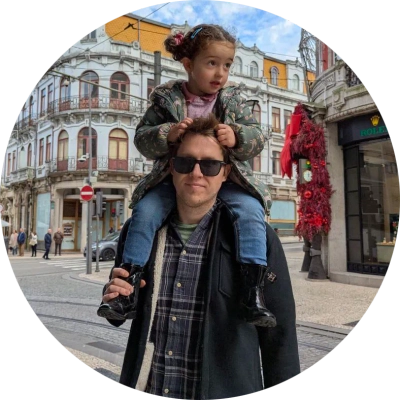
Improve Emotional Intelligence for Competitive Advantage
In my experience, continuous learning is the single most reliable predictor of a firm's longevity. We often treat it as a compliance issue—checking off Florida Bar CLE credits just to stay licensed—but that is a dangerous baseline. Real leadership development is about combating complacency. In a state like Florida, where tort reform and insurance legislation shift the ground beneath us overnight, relying solely on the legal knowledge that passed the Bar exam twenty years ago is a recipe for obsolescence. I view learning not as 'staying current' but as 'staying relevant'. If I'm not actively studying emerging technologies or changing jury demographics, I am failing my clients who rely on me to navigate the modern landscape, not the past.
If I had to choose one specific area every leader must relentlessly improve, it is Emotional Intelligence (EQ). We are trained to be warriors in the courtroom, but we are often ill-equipped for the emotional triage required in the conference room. Improving your EQ—specifically the ability to practice active empathy under pressure—is what transforms a good attorney into a great managing partner. Whether it's sensing burnout in a high-performing associate before they quit or truly understanding the unvoiced fears of a catastrophically injured client, EQ is the 'soft' skill that drives hard results. In a market as saturated as Florida's, technical brilliance is merely the entry fee. Emotional intelligence is the competitive advantage.
Create Context When Communicating Strategic Pivots
Leadership in theory and in practice demands continuous learning to meet the moment of change in our ever-evolving work environments. I am currently focused on coaching executives and emerging leaders the power of creating context when communicating a pivot in strategy. In order for their communication to resonate and inspire action, they need to be acutely aware of how the specific change impacts an employee's daily process. If that critical context is left out, chaos and confusion can creep in: slowing team members down and risking burnout from disconnection.
Master Customer Retention Through Data Strategy
In the e-commerce game, if you're not aggressively learning and adapting, you're already shrinking. Our whole market—from consumer habits to platform rules—changes monthly, sometimes weekly. I view leader development not as a bonus, but as a non-negotiable insurance policy against obsolescence. If the person at the top stops growing, Co-Wear LLC stops growing.
My biggest current mission is turning our vast amounts of sales figures into something intelligent. I'm deep into data strategy, specifically focused on mastering customer retention. It's not enough for our data to passively tell us what happened last quarter; I need it to actively predict our success.
This means moving past simple metrics like repeat buys. I'm currently focused on how to accurately forecast Customer Lifetime Value (CLV). I need to know the specific, small friction points that cause a customer to make one purchase and then vanish.
This deeper knowledge allows us to stop reacting to old sales reports and start predicting next year's customer base. When we understand why people stay, we can stop wasting resources and ensure we're investing in customers who are truly loyal to the Co-Wear brand.
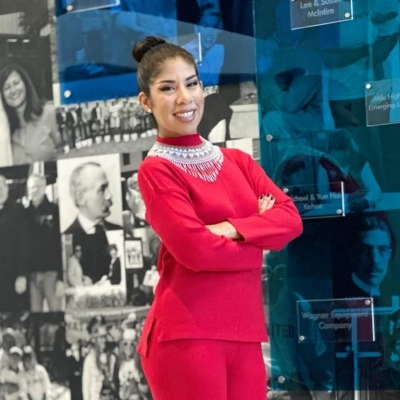
Use Automation to Streamline Hiring Processes
Leaders need to keep learning because if they stop improving themselves, the business will start to fall behind. Markets change, technology changes, and teams want advice that is based on what is happening now, not what happened in the past. Leaders who stay relevant are the ones who make learning a regular part of their lives instead of something they do every now and then.
One thing I'm working on is how to use automation to make HR and hiring processes run more smoothly. I've been improving how Microsoft tools and AI platforms link candidate data, outreach flows, and reports. This helps me make decisions faster and with more clarity. It's a small change that makes a big difference in how well we work.
Aamer Jarg
Talent Shark
www.talentshark.ae.

Learn Faster Than Algorithms Change
In the AI era, leadership means learning faster than the algorithms are changing. As the founder of an AI SaaS company, I've made continuous learning a core part of my role, especially in mastering SEO and AI-driven search. I've been honing my blogging and keyword research skills, studying how ranking systems evolve, and consulting with experts who've built high-traffic sites. What worked in 2020 doesn't always work in 2025, so I treat SEO as an ongoing experiment, one that now includes new channels like ChatGPT and Perplexity AI. Through this effort, I've managed to create a modest stream of high-quality traffic from ChatGPT, resulting in many signups and subscriptions. This continuous learning process keeps me adaptable and informed, exactly what today's leaders need to stay ahead.
Invest in Empathy-Based Communication Training
Continuous learning isn't just important for leaders it's essential for survival in a rapidly changing business landscape. True leadership today means staying adaptable, curious, and open to feedback. The most successful leaders I've met are not those who know everything, but those who never stop evolving.
Personally, I'm currently focused on improving my skills in emotional intelligence and active listening. As teams become more diverse and hybrid, understanding different perspectives and fostering psychological safety has become a real leadership differentiator. By investing time in empathy-based communication training and feedback loops, I've noticed a notable rise in team engagement and trust, proving that leadership growth starts from within — not just from strategy, but from self-awareness.

Interpret AI Outputs With Human Context
Honestly, I don't think leaders have a choice anymore. The world, especially anything touching AI or insurance or tech, moves way too fast. If a leader stops learning, the team feels it immediately. You can't guide people through change if you aren't changing yourself. And trust me, folks can spot a leader who's coasting a mile away.
That's why continuous learning is so important. It keeps you humble, curious, and able to make better decisions when things get tough.
Right now, my focus is on improving ability to interpret AI outputs with more context. No, I'm not talking about the technical side, but the human meaning behind them. Recently, an AI flagged a risk pattern that seemed urgent, but my instincts told me to wait. It turned out the model missed a seasonal business spike.
That experience taught me that learning never ends, because technology keeps surprising us.
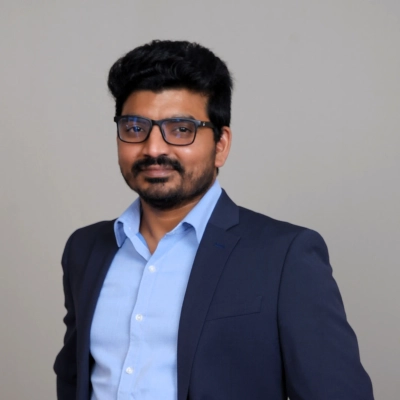
Communicate Clearly to Build Trust
A leader must continuously seek knowledge to be successful. You must grow as a leader no matter what the current environment looks like because there are too many changes taking place quickly. Leaders who grow improve decision-making capabilities while displaying the curiosity and flexibility needed to create an environment that elevates everyone in the company. Your team's ability to see you strive for growth shows that there is a standard for your improvement, and it sets the tone for others to support you.
For my own personal growth as a leader, I try to be clear with my communication. I am making a conscious effort to clearly convey my vision, expectations, and feedback so that all teams are aligned. Good communication leads to less problems and creates the trust necessary to drive performance.
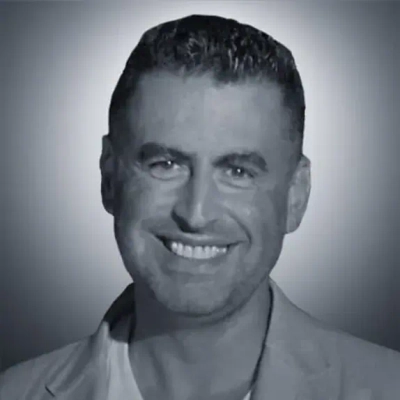
Ensure Human Judgment Guides Your Decisions
Continuous learning isn't optional for leaders, it is the work. The moment we stop examining our own thinking, we start leading from habit rather than insight.
Right now, I'm focused on how leaders make decisions in an environment increasingly shaped, and distorted, by AI. The challenge for leaders is no longer simply accessing or synthesizing information; it's discerning what matters, what's missing, and what's being subtly shaped by the tools we use. Strengthening our decision-making now means building the discipline to question sources, test assumptions, and ensure that human judgment-not algorithmic convenience-guides what we choose to elevate, ignore, or act on.

Admit What You Don't Know
I'm Anatole Noskov, founder of Sparkly Maids and LlamaStay Management in Dallas-Fort Worth. Continuous learning isn't optional if you want to stay relevant - your market changes, technology changes, and what worked three years ago stops working.
I spent over $100K learning Google Ads through trial and error. That sounds reckless, but it was necessary education. You can read all the blog posts you want, but you don't actually learn until you're spending real money and seeing what works in your specific market. I wasted plenty, but I also figured out what drives actual revenue for my business. That knowledge is worth way more than what I spent getting it.
Right now, I'm focused on catching up on SEO. I neglected it for years because I was so deep in pay-per-click advertising. PPC worked great - I could turn on Google Ads and get customers immediately. But I was leaving money on the table by ignoring organic search. Now I'm paying for that mistake because my competitors who invested in SEO years ago have a huge head start.
The frustrating part about SEO is it's slow. With PPC, you can test something today and know by tomorrow if it works. SEO takes months to see results. You write content, build backlinks, optimize your site, and then you wait. It goes against my personality - I want to see results fast. But that's exactly why I need to learn it. The areas where you're weakest are usually where you need to focus.
I'm also learning when to stop doing things myself and hire experts. I used to think I had to understand everything deeply before delegating it. That's a trap. You waste time becoming mediocre at ten things instead of great at three. I hired a freelancer from South America to build custom Python scripts for about $500 upfront because I realized spending weeks learning to code it myself was stupid when I could pay someone who already knows how.
The key is being honest about what you don't know and being willing to look dumb while you're learning it. I ask basic questions all the time. My team knows I don't have all the answers, and that's fine. Better to admit you're learning than pretend you know everything and make expensive mistakes.
Company: Sparkly Maids and LlamaStay Management
Website: sparklymaids.com
Location: Dallas-Fort Worth, TX
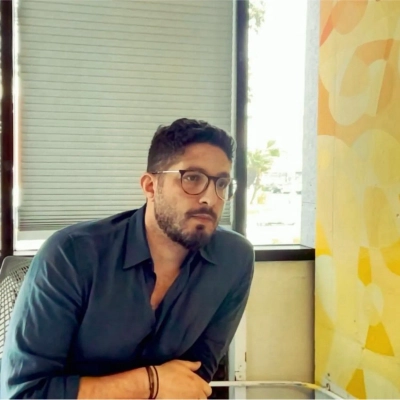
Design Lightweight AI-Assisted Workflows
I see continuous learning as a core part of leadership because teams move faster when the person guiding them keeps growing too. I treat it like a steady habit at Advanced Professional Accounting Services and build small learning blocks into my week. Right now I'm focused on improving how I design lightweight AI-assisted workflows so clients get clearer results with less friction. I test tiny prototypes and review what works. The practice keeps my thinking sharp and my leadership more adaptable.
Master Financial Forecasting and Scenario Planning
Continuous learning for a business owner isn't a nice-to-have; it's a survival requirement. Especially in a technical field like HVAC, if I'm not constantly updating what I know, my whole company falls behind. The moment a leader thinks they know everything is the moment they become a liability. My job is to set the pace for innovation and reliability at Honeycomb Air. If I expect my technicians to stay certified on the latest heat pump technology, I have to be demonstrating that same hunger to learn about everything from supply chain issues to modern customer service.
The hard truth is that the biggest challenge changes every few years. Five years ago, it was about mastering social media marketing; today, it's about people and systems. You have to learn how to lead effectively, not just how to run a profitable service call. If you don't build robust systems for training and delegation, you don't grow past being a solo operation. Learning how to delegate effectively and build trust in a growing team is as essential as understanding air conditioning load calculations.
Right now, the specific area I'm focused on improving is financial forecasting and scenario planning. We operate in San Antonio where the weather can be erratic and the economy is constantly shifting. I'm spending time getting better at modeling potential market changes—like a sharp increase in refrigerant costs or a dip in housing starts—so we can adjust our operational budget proactively. It's about learning to predict the storm so we can properly prepare the Honeycomb Air ship, rather than just reacting once the rain starts pouring.




